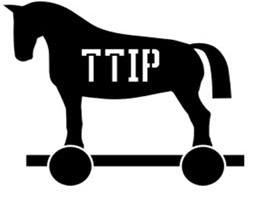Dublin - Event Notice
Thursday January 01 1970
Thursday January 01 1970
Debate: TTIP: What is it and should we be worried?
 dublin |
eu |
event notice
dublin |
eu |
event notice  Tuesday February 10, 2015 23:00
Tuesday February 10, 2015 23:00 by People's Movement
by People's Movement
A debate on the Transatlantic Trade and Investment Partnership
With Constantin Gurdjiev, Economist and
Frank Keoghan, General President, TEEU.
Hosted by Joan Collins TD
Venue:
Wynn's Hotel, Abbey St. Dublin.
Friday February 27th. 7.30pm,

Comments (2 of 2)
Jump To Comment: 1 2Ive heard a lot about TTIP from both camps,i don't align myself with the people that think TTIP is a positive thing.It seems all the elite want to do is pass more laws to empower big business at the expense of the workers whose labour they upsurp.Anyway i might just turn up and have a listen might clear up some confusion on the issue.
The TTP deal is the Trans-Pacific Partnership agreement as opposed to the Transatlantic Trade and Investment Partnership (TTIP) but they are both simply tools to increase corporate power and undermine democratic power then one can assume that whatever goes into TPP will be put into TTIP too.
And the Electronic Frontier Foundation has just written an article describing some of the horrors that corporate movie industry wants. For example
The last point is key because if this one passed then the next day a new company would be setup that would automatically scan every website on the Internet for infringements, and thereby it would be immediate and devastating
Full text at the link below.
Indymedia Ireland is a media collective. We are independent volunteer citizen journalists producing and distributing the authentic voices of the people. Indymedia Ireland is an open news project where anyone can post their own news, comment, videos or photos about Ireland or related matters.